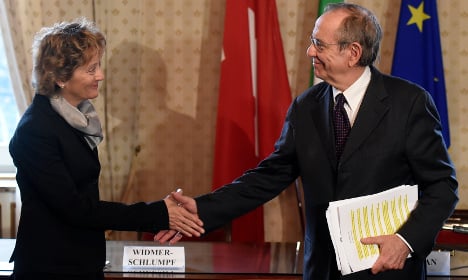Italy’s finance minister, Pier Carlo Padoan, signed the deal with his Swiss counterpart Eveline Widmer-Schlumpf in Milan on Monday.
Under the agreement Italian authorities will be able to request more financial information to catch tax evaders.
The protocol was hailed as a “historic agreement” by Italy’s finance ministry, which aims to reclaim billions of euros in lost tax revenue.
Il ministro @PCPadoan e la consigliera federale elvetica Widmer-Schlumpf hanno appena sottoscritto un'intesa storica pic.twitter.com/zPGIWQTXW4
— MEF (@MEF_GOV) February 23, 2015
Both of the countries’ parliaments must now approve the deal, although authorities will be able to backdate their requests to February 23rd.
Italians who have money stashed away in Swiss bank accounts now have until September to disclose such funds to the authorities and pay their tax bills in full.
Swiss nationals working in Italy are also included in the agreement, Italy’s finance ministry said in a statement.
Switzerland will now be taken off Italy’s “black list”, thanks to the new era of cooperation.



 Please whitelist us to continue reading.
Please whitelist us to continue reading.
Member comments